Below are the Key Findings of the report, some rather horrifying charts, and the report's conclusions.
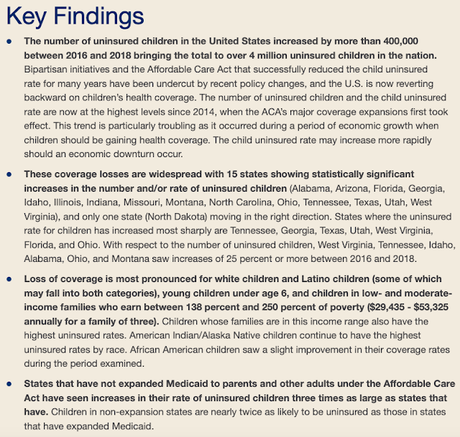
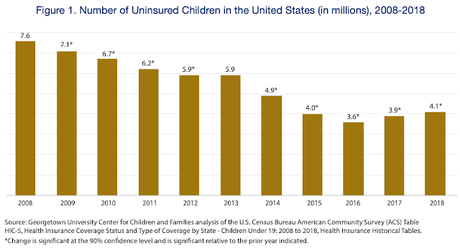
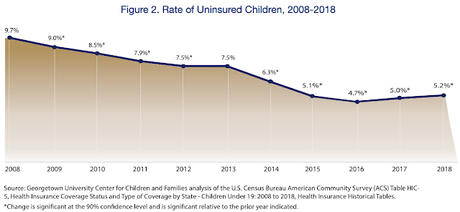
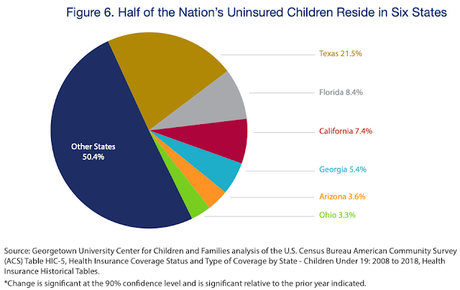
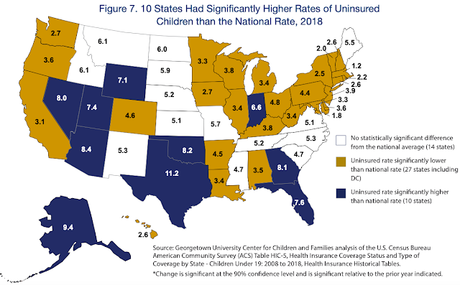
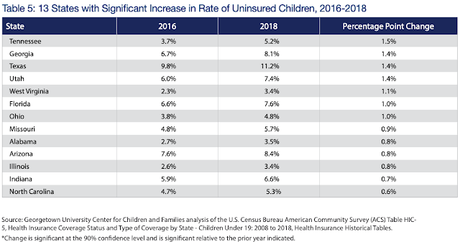
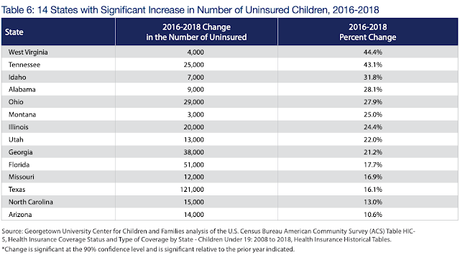
Conclusion
The alarming increase in the number of uninsured children — up by more than 400,000 children between 2016 and 2018— reverses a longstanding, positive trend that was driven by
a bipartisan commitment to children’s health coverage and, more recently, implementation of the ACA. The state-by- state analysis found this reversal is widespread, with only one state showing improvement on this critical child health metric. This is particularly troubling as more children became uninsured during a period of economic growth when more people are working and earning more and children should be gaining coverage.This serious erosion of child health coverage is likely due in large part to the Trump Administration’s actions that have made health coverage harder to access and have deterred families from enrolling their eligible children in Medicaid and CHIP. These actions include attempting to repeal the ACA and deeply cut Medicaid, cutting outreach and advertising funds, encouraging states to put up more red tape barriers that make it harder for families to enroll or renew their eligible children in Medicaid or CHIP (or ignoring it when they do), eliminating the ACA’s individual mandate penalty, and creating a pervasive climate of fear and confusion for immigrant families. That has left many of these families reluctant to enroll their (largely) citizen children in public coverage for fear of having this held against them.
Continuous health coverage is essential for children— improving their access to needed preventive and routine care, improving their health, educational and economic outcomes as adults, and protecting their families from medical debt and bankruptcy when a child breaks a bone, or worse, has cancer.
There are no signs that this disturbing trend in children’s health coverage will abate unless national and state leaders fully rededicate themselves on a bipartisan basis to the goal of ensuring that all children have access to affordable, comprehensive health insurance.

